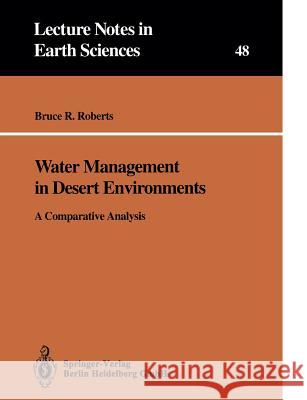Water Management in Desert Environments: A Comparative Analysis » książka
Water Management in Desert Environments: A Comparative Analysis
ISBN-13: 9783540565628 / Angielski / Miękka / 1993 / 337 str.
Based on a comparative analysis of two case studies, this book presents a comprehensive and systematic examination of urban water management in the light of environmental theory. A complex model structure of the subject matter portrays it as a system of interlocking subsystems covering the management structure, the inventory and the urban hydrological conditions. The system itself is also viewed within its wider urban ecological context of interaction between urban and industrial development, land use and the physical environment. This analytical grid also provides the framework for the evaluation of water management reforms, remedial strategies, programs and plans. By seizing upon a crucial problem setting for arid land research, the author most poignantly reveals the complex role of water management within the context of environmental crisis. The choice of urban regions - ]r}mqi, Xinjiang, and Phoenix, Arizona - within systems as culturally and politically different as the United States and the PR of China is apt to give an up-to-date display of the main issues of the topic within a global perspective. The evident socioeconomic contrast between the two systems projects a differentiated notion of the Third World's predicament in this respect, and leads the reader on to explore the opportunities - but also the definite limitations -involved in the transfer of high-standardWestern know-how.











